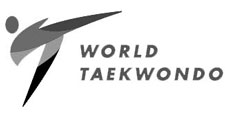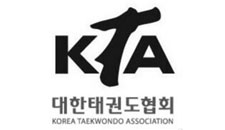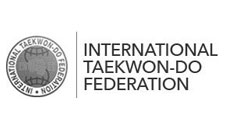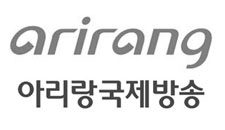Taekwondo 태권도Taekwondo Preschool
Promotion from one geup to the next can proceed rapidly in some schools, since schools often allow geup promotions every two, three, or four months. Students of geup rank learn the most basic techniques first, and then move on to more advanced techniques as they approach first dan. Many of the older and more traditional schools often take longer to allow students to test for higher ranks than newer, more contemporary schools, as they may not have the required testing intervals. View Taekwondo belt levels »

Jidokwan 지도관
The original Taekwondo Kwans. In Korean literally means building or hall, but when used in martial arts it can also refer to a school or clan of martial artists who follow the same style and/or leader.
Jidokwan is one of the original nine schools of the modern Korean martial arts that became Taekwondo and was founded in what is now South Korea at the end of World War II. Its name translates as "School of Wisdom". The Jidokwan in Korea still exists today. It functions as a social fraternal order. Jidokwan supports and endorses the Kukkiwon method of taekwondo, and supports the World Taekwondo (WT).
History
The foundations of what was to eventually become Jidokwan were laid down by Chun, Sang Sup.
When he was seventeen years old, Chun relocated to Japan to attend College at Dong Yang Chuck Sik (Takushoku) University in Japan, where he mastered Shotokan Karate under Gichin Funakoshi. Upon his return to his native Korea, he began teaching the Karate that he had learned in Japan at the Chosun Yun Moo Kwan school of Judo. This was one of the few martial art schools that the Japanese occupying forces allowed to exist during this period of military occupation. During this time, he had a very close relationship with Byung In Yoon, who studied Chuan-fa in Manchuria and became a Shudokan Karate "Shihan" (Sabum or teacher) under Kanken Tōyama while he studied in Japan.
Chun and Yoon would travel to train with other martial artists, sometimes traveling to Manchuria. They trained with each other so much that they became known as brothers. Yoon taught class at Chun's Choson Yun Moo Kwan Kong Soo Do Bu for about 6 months before opening his own club called the YMCA Kwon Bop Bu. Yoon's YMCA club later became the Chang Moo Kwan, which he founded with his most senior student, Nam Suk Lee.
During the Korean War, all schools of martial arts were closed in Korea. This was also the case with the Chosun Yun Moo Kwan. Sang Sup Chun and Byung In Yoon both vanished during the Korean War. Sang Sup Chun has never been heard from since the Korean War. Byung In Yoon died of lung cancer on April 3, 1983 in Cheong-jin City, Ham-Gyoung North Province.
The Jidokwan still exist in Korea today and functions only as a fraternal order which endorses the Kukkiwon system and supports the World Taekwondo Federation (WTF) which was renamed in 2017 to World Taekwondo (WT) 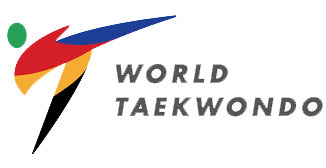 .
.
Philosophy
Taekwondo Jidokwan's philosophy is as follows (as published in the 2006 Jidokwan 60th Anniversary Handbook):
Leadership (Jidoja)
1. A leadership imbued with wisdom and refinement.
2. A courageous activist who thinks before his action.
3. A patriot who is devoted to the welfare of his/her nation.
The objectives of Instructor Education
1. To help maintain self-perfection which is respected by the public.
2. To help form an avant-garde in organizing national force to stop the aggressors.
3. To help achieve ideological innovation in taekwondo spirit.
4. To help actively participate in the service to the public for the community development.
5. To help foster high hopes and great ambition by encouraging savings.
The Spirit of the Eight Manners of Solemnity
1. View Rightly
2. Feel Rightly
3. Think Rightly
4. Speak Rightly
5. Order Rightly
6. Contribute Rightly
7. Use Abilities
8. Conduct Rightly
Credo of Taekwondo Jidokwan
1. Taekwondo for myself.
2. Taekwondo for the Jidokwan.
3. Taekwondo for our country.
Jidokwan Pledge
1. I will observe the rules and absolutely obey the order of Jidokwan.
2. I will attain physical and mental discipline in the spirit of Jidokwan.
3. I will devote myself to the creation of new tradition and achievement of Jidokwan.

Original Taekwondo Kwans ( 관 )
In Korean, kwan ( 관 ) literally means building or hall, but when used in martial arts it can also refer to a school or clan of martial artists who follow the same style and/or leader. On January 8, 1977, nine of the largest kwans unified, recognizing the Kukkiwon 국기원 as being the black belt promotional body for taekwondo. Prior to this declaration, many practitioners had considered their individual kwan certifications as being more valuable than the certificates which were issued by the Kukkiwon 국기원 or Korea Taekwondo Association (KTA). For more information View Taekwondo Kwans ( 관 ) »
There are five tenets defined in the International Taekwondo Federation (ITF) and several more in World Taekwondo (WT).
Indomitable Spirit ( 백절불굴 baekjul-boolgool ): "To have indomitable spirit means to have the courage to stand up for what you believe in, no matter what odds you are up against, and to always give 100% effort in whatever you do." View Taekwondo Tenets »
RESOURCES
This article uses material from the Wikipedia article "Jidokwan", which is released under the Creative Commons Attribution-Share-Alike License 3.0.














